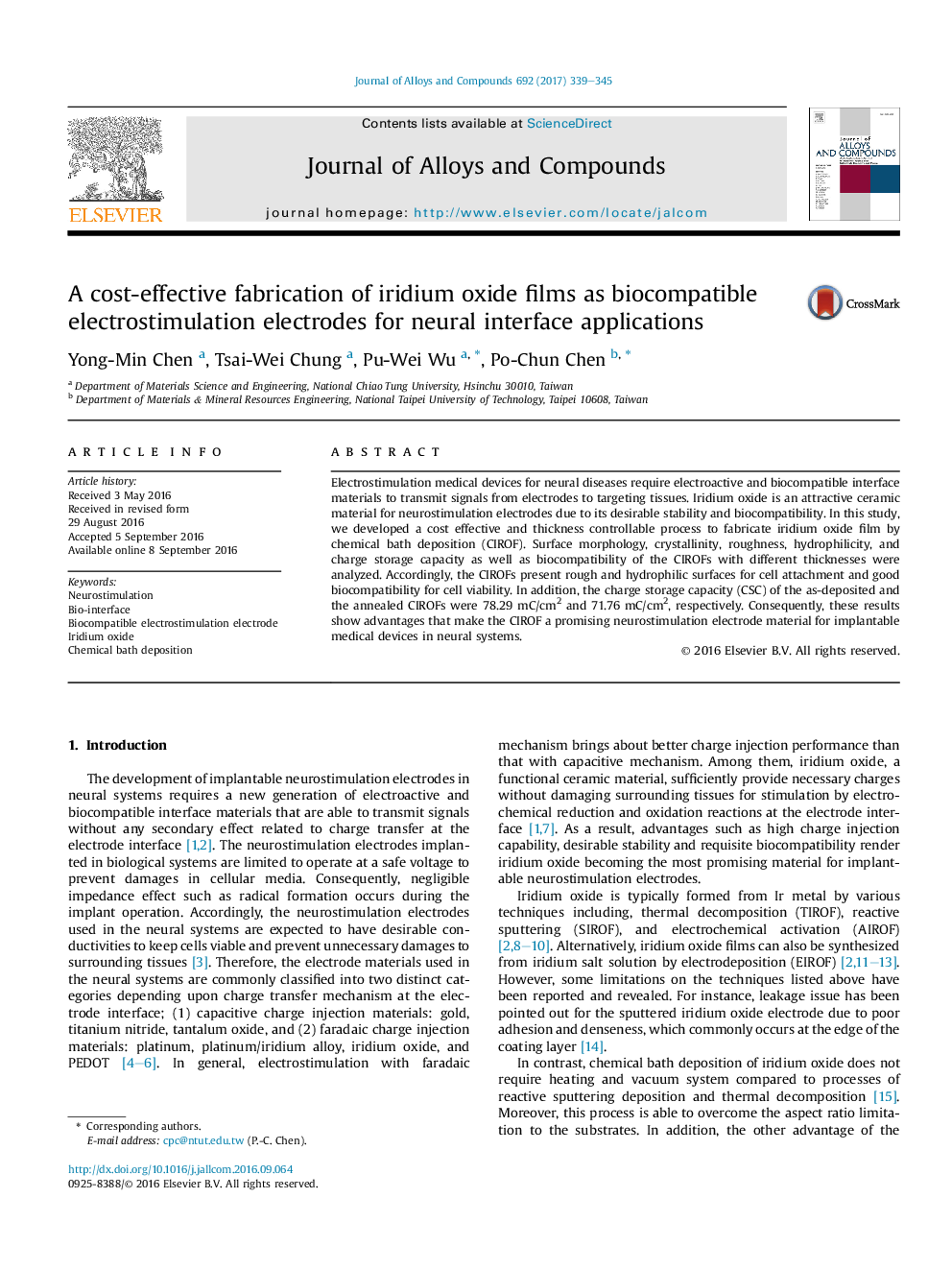| Article ID | Journal | Published Year | Pages | File Type |
|---|---|---|---|---|
| 5461510 | Journal of Alloys and Compounds | 2017 | 7 Pages |
Abstract
Electrostimulation medical devices for neural diseases require electroactive and biocompatible interface materials to transmit signals from electrodes to targeting tissues. Iridium oxide is an attractive ceramic material for neurostimulation electrodes due to its desirable stability and biocompatibility. In this study, we developed a cost effective and thickness controllable process to fabricate iridium oxide film by chemical bath deposition (CIROF). Surface morphology, crystallinity, roughness, hydrophilicity, and charge storage capacity as well as biocompatibility of the CIROFs with different thicknesses were analyzed. Accordingly, the CIROFs present rough and hydrophilic surfaces for cell attachment and good biocompatibility for cell viability. In addition, the charge storage capacity (CSC) of the as-deposited and the annealed CIROFs were 78.29Â mC/cm2 and 71.76Â mC/cm2, respectively. Consequently, these results show advantages that make the CIROF a promising neurostimulation electrode material for implantable medical devices in neural systems.
Related Topics
Physical Sciences and Engineering
Materials Science
Metals and Alloys
Authors
Yong-Min Chen, Tsai-Wei Chung, Pu-Wei Wu, Po-Chun Chen,
